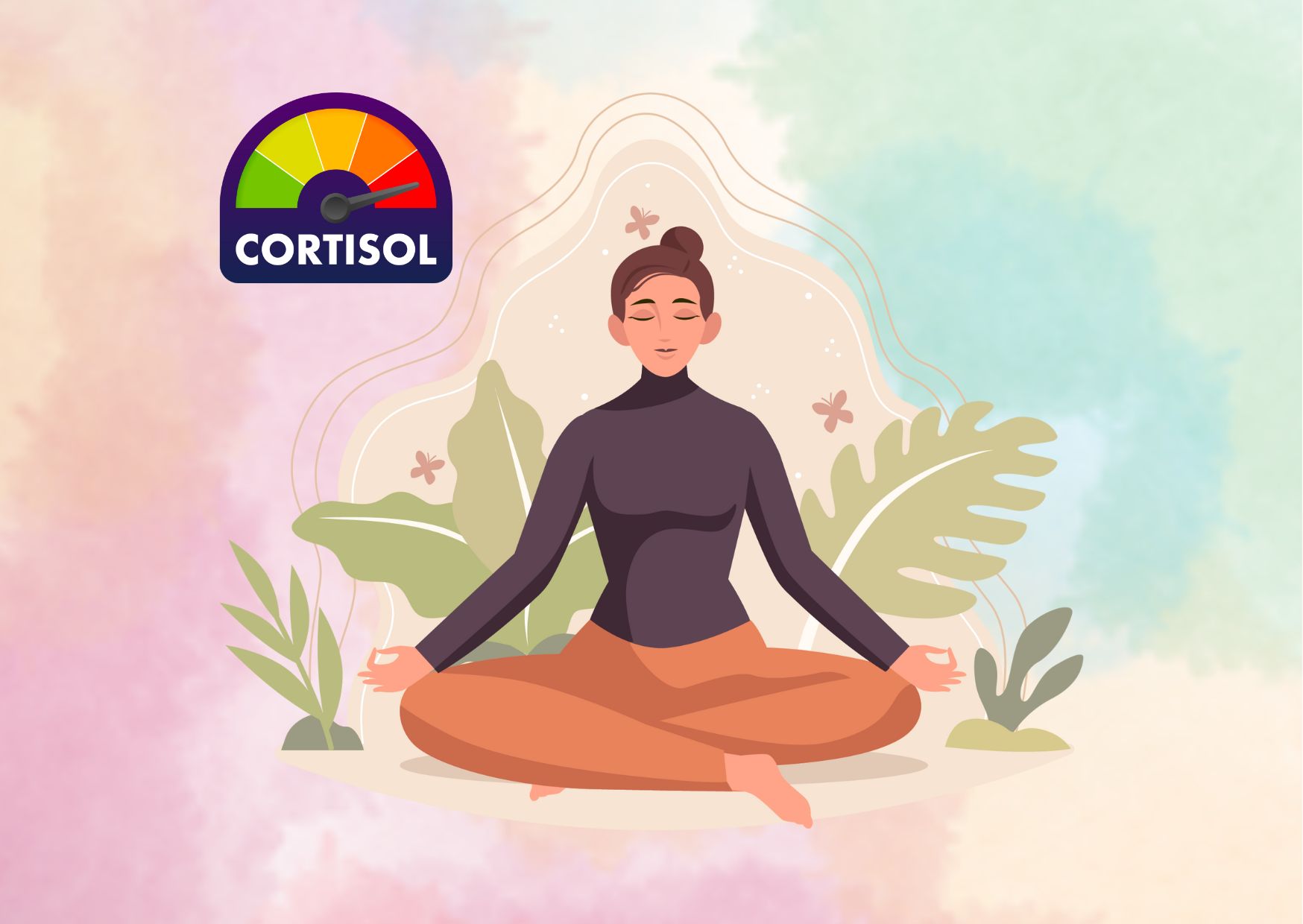Naturally Lower Cortisol Levels and Master Your Stress
In today’s fast-paced world, stress has become a constant companion for many individuals, leading to elevated levels of cortisol, the body’s primary stress hormone. Chronically high cortisol levels can wreak havoc on our well-being, contributing to weight gain, chronic diseases, sleep disturbances, and a weakened immune system. Fortunately, there are effective ways to naturally lower cortisol levels and regain control over our stress response.
This comprehensive guide will explore various techniques to master stress and maintain healthy cortisol levels, including yoga, exercise, spirituality, dietary approaches (how to lower cortisol with food), routines to reduce cortisol at night and in the morning, supplements (how to lower cortisol supplements), and relaxation methods like meditation. By incorporating these natural strategies (ways to lower cortisol), you can learn how to lower cortisol levels fast, get rid of excess cortisol, and balance cortisol for improved overall health and well-being, especially for females seeking treatment for high cortisol levels.
Understanding Cortisol
Cortisol, often referred to as the “stress hormone,” is a steroid hormone produced by the adrenal glands. It plays a crucial role in regulating various bodily functions and processes. Here’s a deeper understanding of cortisol and its impact on our well-being:
- Cortisol’s Role in the Body
- Cortisol is a hormone that affects nearly every organ system in the body, including the nervous, immune, cardiovascular, respiratory, reproductive, musculoskeletal, and integumentary systems.
- It helps regulate the body’s stress response, metabolism, inflammation, blood pressure, and sleep-wake cycle.
- Cortisol levels naturally fluctuate throughout the day, following a circadian rhythm. Levels typically peak around 9 AM and drop to their lowest point around midnight, aiding the sleep-wake cycle.
- The Hypothalamic-Pituitary-Adrenal (HPA) Axis
- The production and regulation of cortisol involve the hypothalamus, pituitary gland, and adrenal glands, collectively known as the HPA axis.
- The hypothalamus releases corticotropin-releasing hormone (CRH), which stimulates the pituitary gland to produce adrenocorticotropic hormone (ACTH).
- ACTH then signals the adrenal glands to release cortisol into the bloodstream.
- Cortisol Imbalances and Health Implications
| Condition | Description | Potential Symptoms |
| Hypercortisolism (Cushing’s Syndrome) | Excessive cortisol production | Weight gain, high blood sugar, high blood pressure, muscle weakness, osteoporosis |
| Hypocortisolism (Addison’s Disease) | Insufficient cortisol production | Fatigue, weight loss, low blood pressure, muscle weakness |
- Chronic stress can lead to prolonged exposure to high cortisol levels, contributing to various health issues, including anxiety, depression, digestive problems, headaches, heart disease, sleep disturbances, weight gain, and cognitive impairments.
- Factors like diet, chronic stress, sleep disorders, and certain medical conditions can disrupt the HPA axis and affect cortisol levels.
Understanding cortisol’s functions, regulation, and potential imbalances is crucial for managing stress and maintaining overall well-being. By implementing effective stress management techniques and adopting a healthy lifestyle, individuals can work towards achieving a balanced cortisol level and mitigating the adverse effects of chronic stress.
Stress Management Techniques for Lower Cortisol
Adopting effective stress management techniques can significantly contribute to lowering cortisol levels and promoting overall well-being. Here are some proven strategies to consider:
- Exercise and Physical Activity
Regular exercise has been shown to be an excellent way to reduce cortisol levels, especially as individuals age. Engaging in physical activities like brisk walking, jogging, cycling, or strength training can help counteract the effects of stress and promote a healthier cortisol balance.
- Mindfulness Practices
Mindfulness activities, such as yoga, tai chi, meditation, and deep breathing exercises, have been found to be highly effective in reducing cortisol levels. These practices stimulate the parasympathetic nervous system, promoting relaxation and lowering stress hormones like cortisol. Incorporating mindfulness into your daily routine can have a profound impact on managing stress and maintaining a balanced cortisol level.
- Engaging in Enjoyable Activities
Engaging in activities that bring joy, laughter, and relaxation can help suppress cortisol levels. Pursuing hobbies, spending time with loved ones, or participating in recreational activities can promote the release of endorphins, which act as natural stress relievers. Additionally, interacting with pets has been shown to reduce stress and cortisol levels.
Other effective strategies for lowering cortisol include:
- Prioritizing sleep and practicing good sleep hygiene.
- Spending time in nature and engaging in activities like forest bathing.
- Maintaining healthy relationships and resolving conflicts.
- Addressing feelings of guilt, shame, or inadequacy.
- Developing faith and practicing acts of kindness.
- Seeking support from mental health professionals when needed.
By incorporating a combination of these stress management techniques into your daily routine, you can take proactive steps towards achieving a balanced cortisol level and improving your overall well-being.
Importance of Sleep
Sleep plays a pivotal role in regulating cortisol levels and maintaining overall well-being. The relationship between sleep and cortisol is bidirectional, with sleep influencing cortisol secretion and cortisol levels affecting sleep quality.
Good Sleep for Lower Cortisol
- The hypothalamic-pituitary-adrenal (HPA) axis, which regulates cortisol secretion, follows a circadian rhythm. Cortisol levels naturally peak in the morning and gradually decline throughout the day, reaching their lowest point around midnight to facilitate sleep onset.
- Sleep deprivation, both acute and chronic, can disrupt this natural rhythm and lead to increased cortisol levels. Elevated cortisol levels, in turn, can impair glucose metabolism, contribute to weight gain, and exacerbate conditions like obesity and diabetes.
- Insomnia and other sleep disorders, such as obstructive sleep apnea, are associated with dysregulation of the HPA axis and increased evening and nighttime cortisol levels, perpetuating a vicious cycle of poor sleep and elevated stress hormones.
Optimizing Sleep for Cortisol Balance
To maintain healthy cortisol rhythms and promote overall well-being, it is crucial to prioritize quality sleep. Here are some strategies to consider:

